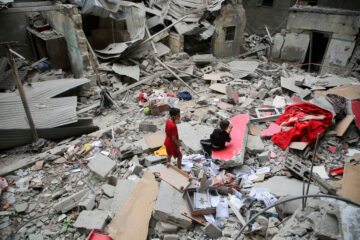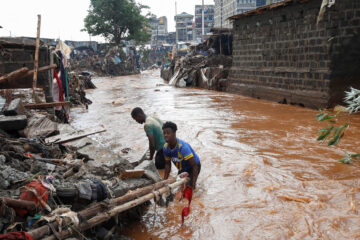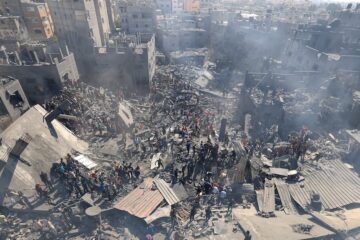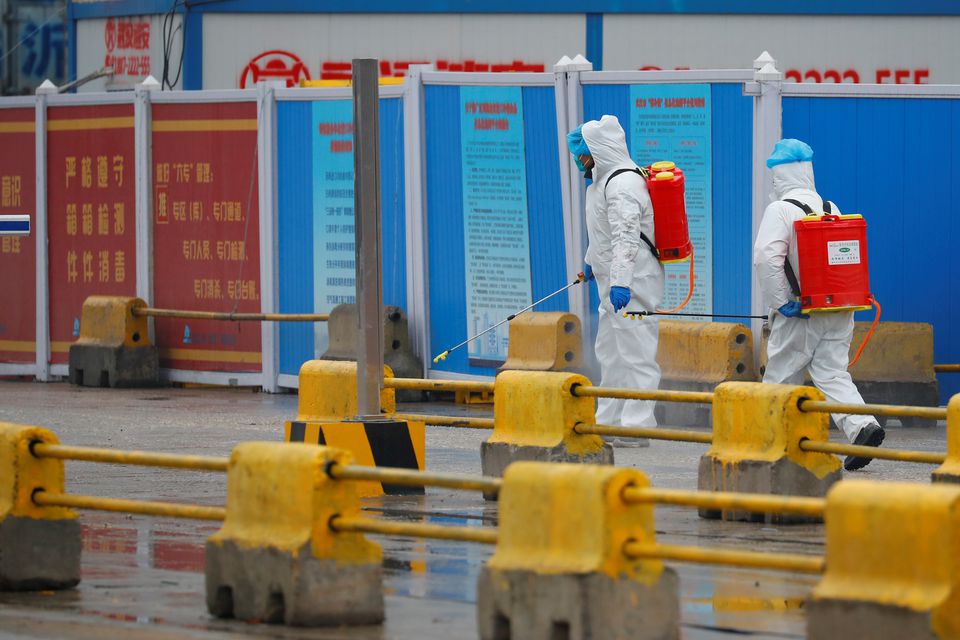Syria forces retake Palmyra in major victory over IS
Syrian troops backed by Russian forces recaptured the famed ancient city of Palmyra from the Islamic State group on Sunday in a major victory over the jihadists.
Army sappers were defusing mines and bombs planted by IS in the city\’s ancient ruins, a UNESCO world heritage site where the jihadists sparked a global outcry with the systematic destruction of treasured monuments, a military source said.
IS lost at least 400 fighters in the battle for the city, the Syrian Observatory for Human Rights said. On the government side, 188 troops and militiamen were killed.
"That\’s the heaviest losses that IS has sustained in a single battle since its creation" in 2013, the director of the Britain-based monitoring group, Rami Abdel Rahman, told AFP.
"It is a symbolic defeat for IS comparable with that in Kobane," a town on the Turkish border where Kurdish fighters held out against a months-long siege by IS in 2014-15, he added.
IS, behind a string of attacks in the West including last week\’s Brussels bombings, is under growing pressure from Syrian and Iraqi military offensives to retake bastions of its self-proclaimed "caliphate".
On Thursday, the Iraqi army announced the launch of an offensive to recapture second city Mosul, held by the jihadists since June 2014.
"After heavy fighting during the night, the army is in full control of Palmyra — both the ancient site and the residential neighbourhoods," the military source told AFP.
IS fighters pulled out, retreating towards the towns of Sukhnah and Deir Ezzor to the east.
Troops also captured the airport southeast of the city, the source added.
The Observatory said the pullout had been ordered by IS high command.
"A handful of IS fighters are refusing to leave the city and seem to want to fight on to the bitter end," Abdel Rahman said.
IS overran the Palmyra ruins and adjacent modern city in May 2015.
It blew up two of the site\’s treasured temples, its triumphal arch and a dozen tower tombs, in a campaign of destruction that UNESCO described as a war crime punishable by the International Criminal Court.
The jihadists used Palmyra\’s ancient amphitheatre as a venue for public executions, including the beheading of the city\’s 82-year-old former antiquities chief.
UNESCO chief Irina Bokova on Thursday welcomed the Syrian government offensive to recapture the city.
"Palmyra has been a symbol of the cultural cleansing plaguing the Middle East," she said.
The oasis city\’s recapture is a strategic as well as symbolic victory for President Bashar al-Assad, since it provides control of the surrounding desert extending all the way to the Iraqi border.
Russian forces, which intervened in support of longtime ally Assad last September, have been heavily involved in the offensive to retake Palmyra despite a major drawdown last week.
Russian warplanes conducted more than 40 combat sorties in just 24 hours from Friday to Saturday, targeting "158 terrorist" positions, according to the Russian defence ministry.
Elsewhere in Syria, a ceasefire in areas held by the government and non-jihadist rebels has largely held since February 27, in a boost to diplomatic efforts to end a five-year war that has killed more than 270,000 people.
The recapture of Palmyra sets government forces up for a drive on the jihadists\’ de facto Syrian capital of Raqa in the Euphrates valley to the north.
"The army will have regained confidence and morale, and will have prepared itself for the next expected battle in Raqa," a military source said on Saturday.
With the road linking Palmyra to Raqa now under army control, IS fighters in the ancient city can only retreat eastwards towards the Iraqi border.
Palmyra was a major centre of the ancient world as it lay on the caravan route linking the Roman Empire with Persia and the east.
Pledging Russian support for the offensive to retake the city earlier this month, President Vladimir Putin described it as a "pearl of world civilisation".
Situated about 210 kilometres (130 miles) northeast of Damascus, it drew some 150,000 tourists a year before it became engulfed by Syria\’s devastating civil war.
SOURCE: AFP
[do_widget_area inner_adsbar]











